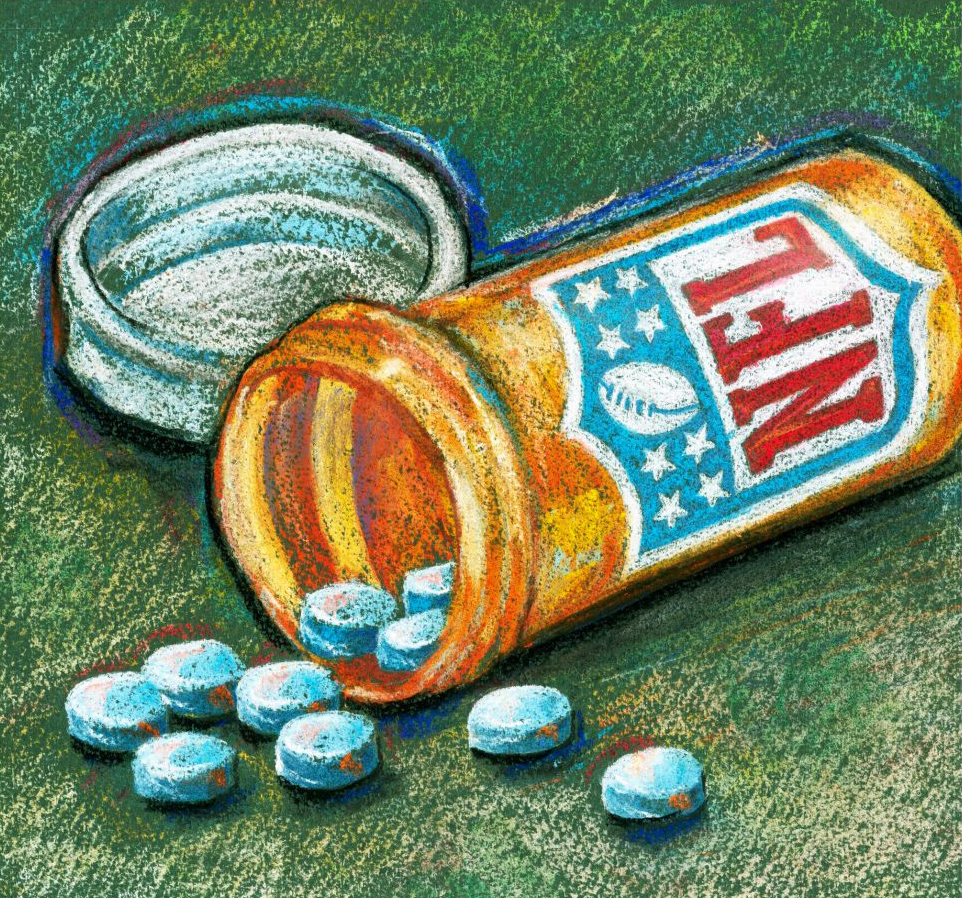
Image courtesy of the Star Tribune
Retirement is a huge life transition for a professional athlete. The majority of retired athletes have been competitors all their lives — it’s what they know. It’s what they do.
featuGiven the uncertainty and emotions that can come with retirement, it isn’t surprising to find that a number of pro athletes battle addiction once they’re done playing. Some struggle with substance abuse in the form of steroids or pain killer addiction while they’re still playing, and it continues long after they’ve retired their number.
Many experts note that painkillers are a gateway to heroin use. In addition to being extremely harmful to the body, the heroin withdrawl timeline is relatively short. Withdrawal symptoms can begin in as little as six hours after use, which makes it highly addictive. Pain killers can work the same way.
Because of the stigma that comes with addiction, many athletes hide their dependency and don’t seek help, which makes it all the more difficult to break the cycle of drug abuse. In the case of retired athletes, it can become a coping mechanism for some physical and psychological issues.
Retired Athletes Feel Like They’ve Lost Their Identity
A significant number of retired athletes feel like their identity is gone once they stop playing a sport. Being a part of a team is a powerful identifier; you have a uniform and you are part of an organization that is very identifiable. For some of the top athletes, the thought they’ve lost their identity is inescapable. During their professional career, people know who they are because they’re an athlete.
Take Michael Phelps, for example. After winning eight gold medals during the 2008 Olympics, he became a household name because of his athletic achievements. Very few people follow the sport of swimming, but “elite swimmer” quickly became Phelps entire identity. So much so, people were amazed when pictures were leaked of a young Phelps smoking marijuana a few months after the Olympics.
If an athlete doesn’t have another purpose and passion to replace playing a sport, it can take a toll on them mentally. They can feel lost and as if they’re no longer useful. These negative stressors can cause retired athletes to turn to drugs as a way to deal with their feelings.
Increased Risk of Depression
A number of factors can contribute to depression after retirement. In addition to feeling as if a significant part of their identity is gone, many also miss the adrenaline of the game.
Some studies have suggested that athletes are at a higher risk of depression than the general public because of their hardcore training regimen. Research has shown that intense exercise can be as addictive as heroin. Some experts have argued this primes athletes for addiction. When the need for extensive training is gone so is the rush that was once felt, further increasing the potential for depression.
Another Olympic swimmer and world record holder, Geoff Huegill, battled depression and drug abuse after retiring in 2004. With less of a support system than they had before, retired athletes can quickly slide into a deep depression that significantly increases the risk of drug addition.
The Pressure to Perform Doesn’t Go Away
Professional athletes face an overwhelming amount of pressure to perform. They have to stay in peak physical condition, sometimes fighting through pain and fatigue, because there’s always a lingering fear they’ll be replaced. Performance also directly correlates with the monetary value of their contracts.
Once an athlete retires that pressure to perform doesn’t go away, nor does the desire to compete. For some, it can get worse as competitors try to prove to themselves they still have what it takes. Consider how many athletes have made returns after retiring. There are dozens of examples, many of which were short-lived.
Injury and Pain Leaves Athletes More Susceptible to Addiction
The use of opioids is perhaps the most troubling trend. The general public, including former athletes, are abusing prescription drugs in record numbers. Some reports have found that retired NFL players are four times more likely to get hooked on opioid pain medications.
This is understandable given the number of injuries that professional athletes sustain. Many are prescribed painkillers to deal with legitimate physical problems. Sometimes the use continues after the pain has subsided, and other times athletes feel the need to continue using them out of fear the pain will return.
This epidemic has been receiving more attention in recent years. Unfortunately, it’s only come after events like the death of NHL player Derek Boogaard, a result of alcohol and oxycodone overdose. More recently, retired NBA star Lamar Odom had a brush with death after a drug overdose, which was partly attributed to pain. Hopefully those are the last examples we see, because the warning signs are out there for everyone to see now.


Wiktionary has grown beyond a standard dictionary and now includes a thesaurus, a rhyme guide,
phrase books, language statistics and extensive appendices. We aim to include not only the definition of a word,
but also enough information to really understand it. Thus etymologies, pronunciations, sample quotations, synonyms,
antonyms and translations are included. – https://nex1music.ir/آهنگ-مهدی-احمدوند-سلام/
thank you.https://nex1music.ir/آهنگ-دایان-میرم-کوه/
You show an impressive grasp of this subject! Such a nice Post Keep up the Good Work
CCTV Security Camera Installation Service in London
Dillsboro has an average cost of living when compared to other American cities. Dillsboro offers retirees the best of both worlds: the tranquility of a small driving directions town with access to year-round outdoor activities and the vibrancy of nearby Asheville.
thanks friend i read this page exatly to understand you آهنگ مازندرانی غمگین mst-240@